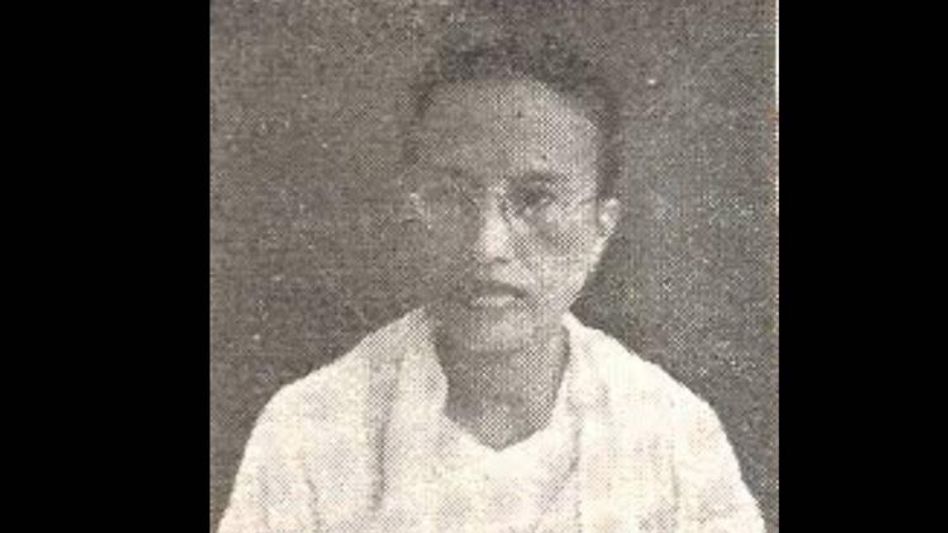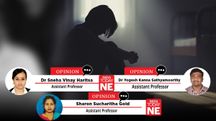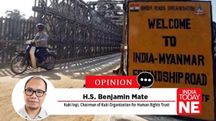Meet Bonily Khongmen, the first woman MP from the north east
Bonily Khongman was a Member of the Union Public Service Commission (UPSC) in 1963. She was the first person from the North East to become a member of UPSC. After she retired from UPSC in 1970, she was appointed as the Chairperson of the first Nagaland Public Service Commission. Perhaps she was the only Indian who headed two different Public Service Commissions.
 Bonily Khongmen, the first woman MP from the north east
Bonily Khongmen, the first woman MP from the north eastOn April 25, Droupadi Murmu took oath as the first ever tribal President of India. She is also the second woman to occupy the highest constitutional position in the country. For the tribal nominated north eastern states, this is an inspiring development. This is perhaps another step in the direction towards empowerment of the marginalised.
This April, the ruling BJP created history by sending S Phangnon Konyak to Rajya Sabha. She became the first-ever woman MP to the upper house from Nagaland. Of the 33 women members in Rajya Sabha, she is the only one from the north east. Of the 25 women members in Lok Sabha, only three are from the north east. That’s unfortunate, considering that the north east sent the first woman member to parliament in 1952 in the form of Kabon Neli Timungpi, later known as Bonily Khongmen.
Like any other young girl of her generation, Kabon Neli Timungpi was interested in spinning and weaving clothes. However, there were two things, she knew, that made her different from other girls in her tiny village, Umpanai, nestled in Karbi Anglong Hills of Assam. One, she could play the violin, and two, she could read.
Kabon Neli was born on June 23, 1913 at Jowai Town of present-day Meghalaya where her father Dr M. S. Timung practiced as a physician. Her mother Florisa Krowpi was a housewife. She did her schooling at Welsh Mission Girls School, Shillong. Kabon Neli passed her matriculation with flying colours and could manage a scholarship too. However, at this juncture, her father expired, and the family faced severe financial constraints. With the help of her scholarship, Kabon Neli could finish her BA Degree from Diocesan College, Kolkata. She became the first woman to graduate from the Karbi tribe.
Soon after completing her graduation, she started her career as an educationist. She joined Golaghat Girls High School in 1932 as the Head Mistress. During this period, she met a young advocate of Shillong, Mr Wilson Khongmen. Soon they decided to get married. After her marriage in 1934, Kabon Neli Timungpi changed her name to Bonily Khongmen.
Bonily shifted to Shillong and joined Assamese Girls School as Head Mistress and then Lady Reid Non-Sectarian Girls School. After shifting to Shillong, Bonily Khongmen also jumped into politics and joined the Indian Freedom Struggle as a member of the Indian National Congress.
A year later, the Government of India Act, 1935 opened up a new vista for women’s participation in electoral politics in India. Accordingly, an assembly seat in Shillong was reserved for women. In 1937, from that seat, Mavis Dun Mowlong was elected as the first women member of a legislative assembly in north east India. In the election of 1946, Bonily Khongman fought for the Shillong Reserved seat as a Congress candidate and defeated Mavis Dun Mowlong to become a member of the Assam Assembly. Soon she was also elected as the Deputy Speaker of the House.
Post-Independence, the first general election in India was held in 1952. In Assam, two women candidates took part in that parliamentary election. Rani Manjula Devi, an independent candidate from Goalpara-Garo Hills Constituency, and Bonily Khongman a Congress candidate from the Reserved Autonomous Districts Constituency (Shillong). Rani Manjula Devi could not win the election, but Bonily Khongman won the seat defeating Khasi-Jayantia Darbar’s candidate Wilson Reed. And, thus, Bonily Khongman became the first woman member of Parliament from the north east.
In 1957 also, Bonily Khongman contested the election from the same seat. However, then the movement for separate states was at its peak in the hills. Riding the wave, the Eastern Indian Tribal Union’s Brojo Mohan Roy won the election defeating Bonily Khongman.
But the electoral debacle did not end her public life. Soon after the election, Assam Government appointed her as a member of the Assam Public Service Commission (APSC) and was elevated to the post of Chairperson in 1963. She was the first woman to become the Chairperson of APSC. Interestingly, Dr Geeta Basumatari is the only second woman who held the post in 2007.
After retiring as APSC Chairperson, Bonily Khongman was appointed as a Member of the Union Public Service Commission (UPSC) in 1963. She was the first person from the North East to become a member of UPSC. After she retired from UPSC in 1970, she was appointed as the Chairperson of the first Nagaland Public Service Commission. Perhaps she was the only Indian who headed two different Public Service Commissions.
After a long eventful life, Bonily Khongmen died on March 17, 2007, at the age of 92. She was laid to rest in the All-Saint’s Church cemetery at Shillong.
Ashiq Zaman is an IRS officer and author
Copyright©2026 Living Media India Limited. For reprint rights: Syndications Today









